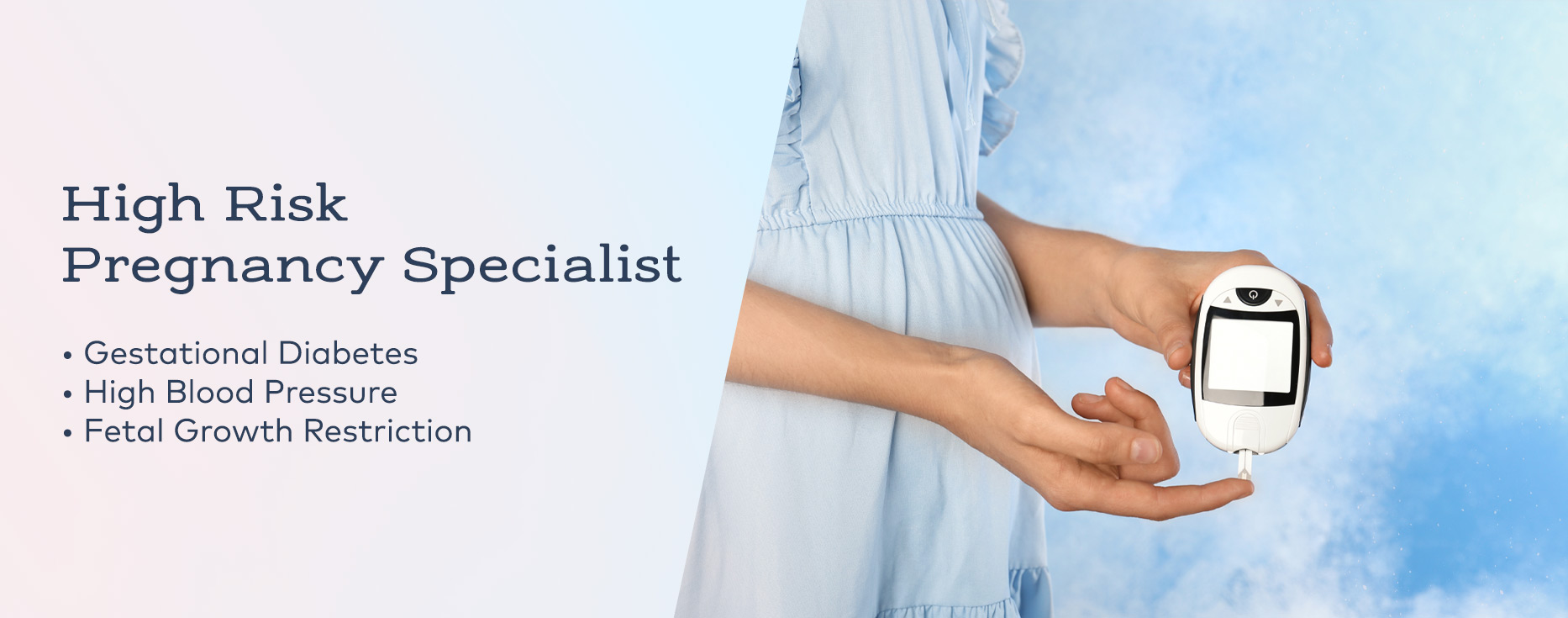Gestational Diabetes


What is gestational diabetes?
- Gestational diabetes is when blood glucose levels (high blood sugar) increase during pregnancy, often around 24 to 28 weeks, and this can impact both mother and baby’s health.
- During pregnancy hormone levels change and the placenta produces hormones that help your baby grow and develop. These hormones also block the action of your insulin, called insulin resistance.
- Because of this insulin resistance, the need for insulin is 2 to 3 times higher than normal and your body may not be able to cope with extra demand if you already have some underlying insulin resistance.
- This makes it harder for the body to process blood sugar as efficiently, which can increase blood sugar levels and result in a diagnosis of gestational diabetes.
- Typically, this type of diabetes goes away after delivery of the baby.
Who is at risk of gestational diabetes?
- Although anyone can have diabetes in pregnancy, certain conditions make you at higher risk of gestational diabetes.
- Higher body weight, family history, History of diabetes in previous pregnancy, history of big baby in previous pregnancy are some common risk factors.
- Some ethnicities like South Asian, Indigenous Australian or Torres Strait Islander background or Vietnamese, Chinese, middle eastern Polynesian are also at increased risk.
- In Australia, diabetes remains the country’s fastest growing chronic health condition.
- Other conditions that increase the risk of gestational diabetes include Polycystic Ovary Syndrome or having pre-diabetes.
What are the signs of gestational diabetes?
- Frequently there are no signs or symptoms, although some women report increased thirst and more frequent urination.

What is the gestational diabetes pregnancy test?
- All women will be offered testing for gestational diabetes via a glucose tolerance test, (commonly referred to as sugar test in pregnancy), where blood glucose is taken before you drink glucose and then one and two hours after.
- You will be told not to eat anything when you drink the sugar drink until the next sample is collected at one and at two hours.
What is the risk for babies and mothers who have poorly managed gestational diabetes?
- Once you are diagnosed with this condition, it is very important to manage gestational diabetes well. Poorly managed diabetes in pregnancy (blood glucose levels remain high), can result in birth defects, miscarriage, premature birth, growth disorders, stillbirth or risk of having a large baby.
- Having a larger baby can also increase the risk of injury at birth, including the need for a C-section, or the risk of a birth injury from the baby becoming wedged in the birth canal.
- Babies of mothers with gestational diabetes are also more likely to need looking after in a special care nursery until bub’s glucose levels stabilise.
- Having diabetes also increases the risk of high blood pressure and pre-eclampsia (a serious blood pressure complication of pregnancy).
- If you have gestational diabetes in one pregnancy, you are also more likely to develop it in subsequent pregnancies or develop type 2 diabetes as you get older.
What is the treatment for gestational diabetes?
Careful and experienced ultrasound services to exclude any anomalies in the baby as well as regular monitoring of baby’s growth is very important.
- Prevention is the best treatment, so healthy habits before pregnancy, especially if you’ve had gestational diabetes previously can make a big difference.
- This includes choosing low fat, high fibre foods and managing weight and portion sizes.
- Maintaining physical activity during pregnancy and eating correctly is vital.
- Careful monitoring and maintaining blood sugar within the normal range is the key towards a good outcome. The management is multidisciplinary including endocrinologist, dietician and experienced obstetrician like Dr Shetty.
- Careful and experienced ultrasound services to exclude any anomalies in the baby as well as regular monitoring of baby’s growth is very important.

Why choose an MFM help for gestational diabetes?
- Dr Shetty has managed hundreds of women with diabetes in pregnancy towards achieving a good outcome.
- Dr Shetty will link you with dieticians and endocrinologists to ensure you are well looked after and can easily follow a gestational diabetes management plan.
- She will perform regular ultrasound scans to make sure your baby’s growth is properly monitored and any issues can be picked up at the earliest.
- Dr Shetty will offer you a detailed birth plan to suit your needs.
- You will be properly followed up post birth to help return to good health and your risk of future diabetes can be minimised.


